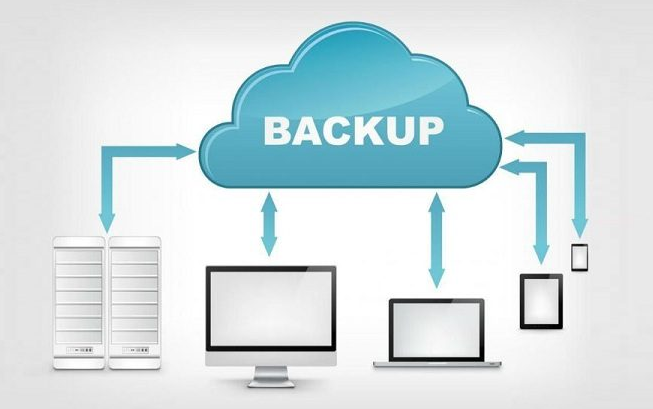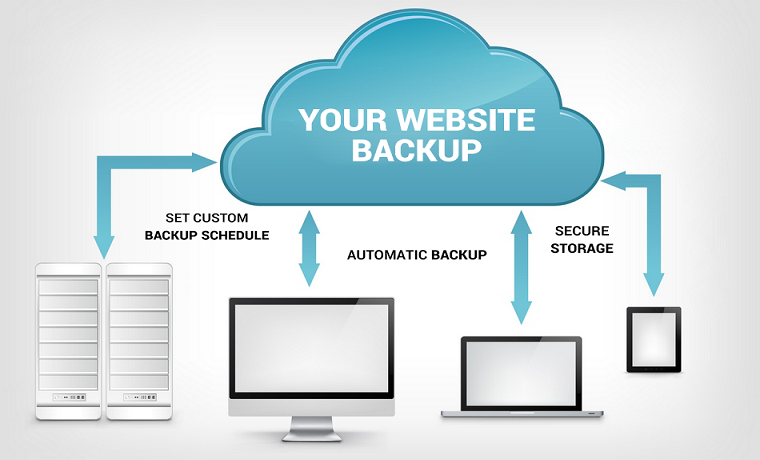By now most people understand the importance of backing up computer, servers and database files but in rare cases do they think securing their websites. Have you ever thought of a situation where by you woke up only to find that your website has crushed or hacked? Losing website content and files can be such a tragedy and can harm your business or personal life for ages. Recovering from such loss can take time and at times not possible. Anything can happen to the host servers, updates could go wrong, and hacking is real plus many other threats that put your website data to risk. To avoid such situations, the quickest and most assured solution to bring back your data and enjoy guaranteed business continuity is an effective website backup.
What Is Website Backup?
- In simple terms, website backup is keeping a copy of all the data and information found on your site. It is a useful practice as it enables you to restore lost data and recover from malicious attacks, server failures or other events that could lead to data damage or loss. Protecting your site data should be a priority to prevent interference functions of your website. Unfortunately, most web owners believe that their website data is safe since it is remotely stored in an offsite server but there are 3 key things you need to clearly understand:
- Your hosting company considers it your duty to backup your website. The hosting service may backup your site but in most cases it is not guaranteed. You need to read and understand the terms of service but keep in mind it is your responsibility to safeguard your website files and data.
- Cpanel backup is a good idea but not an ideal solution. It stores the backup files in the same computer which means if the hard disks fails, all your data is lost. They also significantly large server space since they are non-incremental.
- Even if your hosting provider offers backup services, it may not be reliable simply because the update could be only done on a weekly basis and you have no direct access to the data. In case of anything, restoring data from the host’s backups may take a long process and a good chunk of your data could still be lost forever. Considering the cost of downtime, this option cannot be trusted to provide data safety.
Whether you own a small or a large website, it is a good practice to backup your files and other web content on a daily basis to avoid frustrations when the worst happens. It is faster way of ensuring your site is restored within minutes without having to pay heavy data recovery fees.

4 Major Reasons as To Why It Is Important to Back up Your Website
1. User errors
No matter how careful or attentive we try to be, we always make mistakes – it is human nature. Content managers, developer or other backend users can accidentally delete file(s) which are critical to the website functionality crashing the entire website. With a backup you can easily get your website up and running instantly.
2. Website hacking
While hackers are mainly after financial gains, some will hack websites only for fun; to prove themselves and cause trouble. Such activities may compromise your website and securing and backing up your site could save you from the impact of hacking.
3. System failure
You may think your website is safe because you have a local backup system but your computer could crush and you can lose all the stored data. Your database system could fail too. Having an extra offsite backup like the Ottomatik backup services guarantee you automatic Mysql and website files backup.
4. Failed updates and upgrades
Updating plugins, applications and other website features enhance performance and security. In some cases, a crooked update to these features may cause the entire website to go down and this is the time you really appreciate the value of backups.
We all now agree that a website backup solution is a must have for any website owner. But where do you start?
Key Features of a Website Backup Solution
A good backup solution should satisfy two major standards:
- Must be stored in more than one location: You can have a local backup in your computer or external hard disk, and an extra copy in the cloud.
- Must automatically update frequently: It should allow you to schedule automatic daily, monthly or real time backup and allow you to manually update site data whenever need be.
Other important features include:
- Incremental back up: This means that after the initial backup, only changes and updates will be uploaded which makes it easy to backup huge websites without causing server timeouts. It guarantees quality convenience and reliability.
- Capacity: Should allow you to back up as much as your site’s needs.
- Synchronization Features: Should be synchronized across your devices, database, and website.
- Supports dynamic websites: It should be able to offer reliable backup for database driven websites. The Ottomatik Backup Mysql and Backup PostgreSQL are great recommendations from website data protection experts. You can learn more about this and other features on https://ottomatik.io/
Keep your business running and your peace of mind by ensuring your website is protected against any form of data loss.

